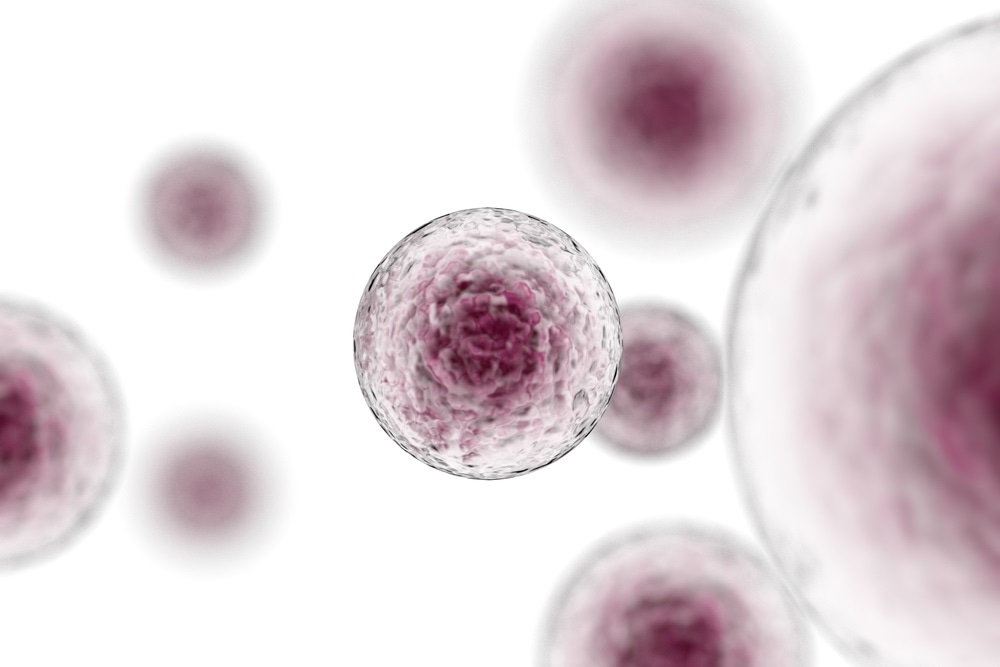Scientists at Stanford University School of Medicine have used stem cell technology to force old human cells to rejuvenate, reversing the impact that aging has on cells. The study is the first step toward developing an approach to reboot entire tissues.
 Image Credits: CI Photos / Shutterstock.com
Image Credits: CI Photos / Shutterstock.com
Expressing Yamanaka factors to reverse aging
Researchers induced muscle stem cells of elderly mice to express a specific set of proteins that are essential to embryonic development for a short period, finding that when transplanted back, the elderly mice recovered their youthful strength.
The panel of proteins that the stem cells were encouraged to express are called Yamanaka factors, those which play a vital role in transforming adult cells into induced pluripotent stem cells (iPS cells). These cells have the potential to differentiate into almost any of the human body’s cell types, which has led to them becoming an important area of study in both drug discovery and regenerative medicine.
The team at Stanford demonstrated that in inducing cells taken from older humans to briefly express Yamanaka factors, many characteristics of the aging cells were seen to reverse, resulting in treated cells being almost indistinguishable from younger ones.
Reversing aging in human cells
The study, published this week in the journal Nature Communications, describes how the approach was inspired by the work that currently is conducted at the Stanford University School of Medicine lab where a team of researchers makes iPS cells from adult human cells by exposing them to a panel of proteins relevant to early embryonic development over a two week period.
During this time, adult cells are exposed to short-lived RNA messages that give instructions for making Yamanaka proteins. As time moves forward, the proteins have the effect of reversing the developmental timeline of the cell, forcing it back to its state as an embryonic-like pluripotent cell. The process sees the cell’s DNA being reset and cleared of molecular tags which accumulate as the cell ages.
The researchers considered whether shortening the time frame of exposure to Yamanaka proteins could induce a youthful reversion in the adult cell without transforming it into a pluripotent cell. Precious studies had indicated that this may be the outcome, as scientists at the Salk Institute for Biological Studies recently found that the lifespan of a mouse with premature aging could be increased by 20% by expressing the four Yamanaka factors.
To find if human cells would behave in the same way, Stanford researchers designed an experiment where they used messenger RNA to briefly express four Yamanaka factors as well as two other proteins in human blood vessels and skin cells obtained from elderly adults. The duration of exposure to these factors was able to be controlled due to the rapid degradation of messenger RNA within cells.
The gene-expression patterns of these treated human cells were then analyzed and compared with the gene-expression of control cells which were also obtained from an elderly population, as well as with untreated cells taken from a younger population.
The results showed that the treated cells demonstrated signs of age reversal following four days of exposure, and were measured to have lower levels of the genes that are related to various aging pathways in comparison to untreated aging cells. The treated elderly cells were more similar to younger cells in terms of their gene expression.
The researchers analyzed methyl groups of the cells which act as an indicator of chronological age. Using this method, it was revealed that the treated cells seemed to be an average of 1½ to 3½ years younger than the untreated elderly cells. The team is excited that this marks a significant step forward in the field of study into the rejuvenation of tissues.
Source:
Old human cells rejuvenated with stem cell technology, Stanford-led study finds. Eurekalert. Available at: https://www.eurekalert.org/pub_releases/2020-03/sm-ohc032220.php